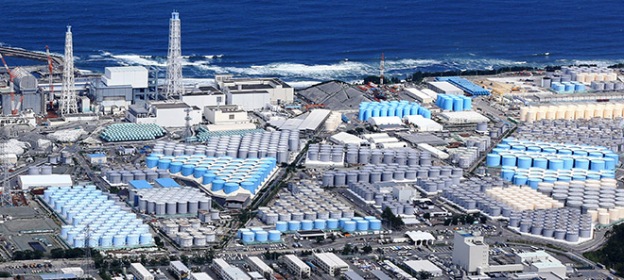Dumping oily wastewater into the ocean has been outlawed globally for decades, but an investigation by DW, in collaboration with the European nonprofit newsroom Lighthouse Reports and eight other European press outlets, has found that the practice is still common today, with potentially devastating effects for the environment.
Satellite imagery and data provided by the environmental group SkyTruth helped identify hundreds of potential dumps across the globe in 2021 alone. But the number of spills is most likely significantly higher because the satellites used by SkyTruth cover less than one-fifth of the world’s oceans. According to the group’s estimate, the amount of oily water dumped into the oceans this way could amount to more than 200,000 cubic meters (52.8 million gallons) annually, or roughly five times the equivalent of the 1989 Exxon Valdez spill in Alaska — one of the worst maritime environmental disasters.
As merchant ships make their journeys, liquids from the engine room, oil, detergents, water and other substances collect in the bottom of the vessel, the bilge. This noxious mixture, called “bilgewater,” is then stored in tanks. In a day, a single merchant ship can produce several tons of it. International regulations require that large vessels treat the bilgewater with an “oily water separator” before it is discharged into the ocean. Each liter of bilgewater pumped into the sea after treatment is permitted a maximum residual-oil proportion of 15 parts per million, or 15 milligrams of oil per liter of water (0.0005 ounces per quart), according to a limit set by the International Maritime Organization (IMO) in 1973. The remaining toxic mixture is stored in tanks onboard and later discharged at harbor in port reception facilities.
All big vessels are required to have working separators. But many ships circumvent the system entirely…through a small, portable pump. “It’s very easy,” one man who had witnessed it in operation on several occasions told DW. “You can assemble this portable pump in five minutes and then detach (in) five minutes and hide (it) if someone is coming.”
The pump is used to transfer the oily water into a different tank — in most cases, the sewage tank. On the high seas, ships are allowed to dump their sewage untreated. Then, the toxic mix is quietly released into the ocean, often under the cover of night or during inclement weather, when there is a lower chance of getting caught, according to several seafarers DW talked to. At night it is harder for authorities to verify the crime, and bad weather can prevent the deployment of surveillance ships and planes… Because the illegal dumps happen at sea, it is difficult for authorities and researchers to track them. That is why satellite imagery is used to monitor the seas for pollution. When a vessel discharges oily wastewater illegally, it usually creates a spill kilometers long and with a very distinct shape.
A system set up in 2007 by the European Maritime Safety Agency, or EMSA, uses radar satellites to “see” through cloud cover and at night to identify possible spills. It alerts the respective member states when one is found…Illegal dumps “still regularly occur in European waters,” according to EMSA, and the number of spills detected and prosecuted remains low. Individual member states do not always follow up on the alerts, and, when they do, it is often not quickly enough. The longer it takes authorities to verify a spill in situ, the less likely they are to find oil, as spills begin to dissipate. In 2019, only 1.5% of spills were verified within a critical three-hour time frame. Polluters are only caught in a fraction of cases.
The satellites are also not able to monitor EU waters continuously, meaning that there is a window of several hours each day during which oil spills can go unnoticed. To get a sense of the total scope of this issue in EU waters, SkyTruth combined data and assumptions from EMSA with calculations of satellite coverage. Based on that fairly conservative estimate, the group expects that every year nearly 3,000 slicks are caused by vessels discharging mineral oil into EU waters. That averages out to more than eight per day — the majority of which go unseen by satellites.
Excerpts from Exclusive: How chronic oil pollution at sea goes unpunished, DW, Mar. 2022









